The following content may contain affiliate links. When you click and shop the links, we receive a commission.
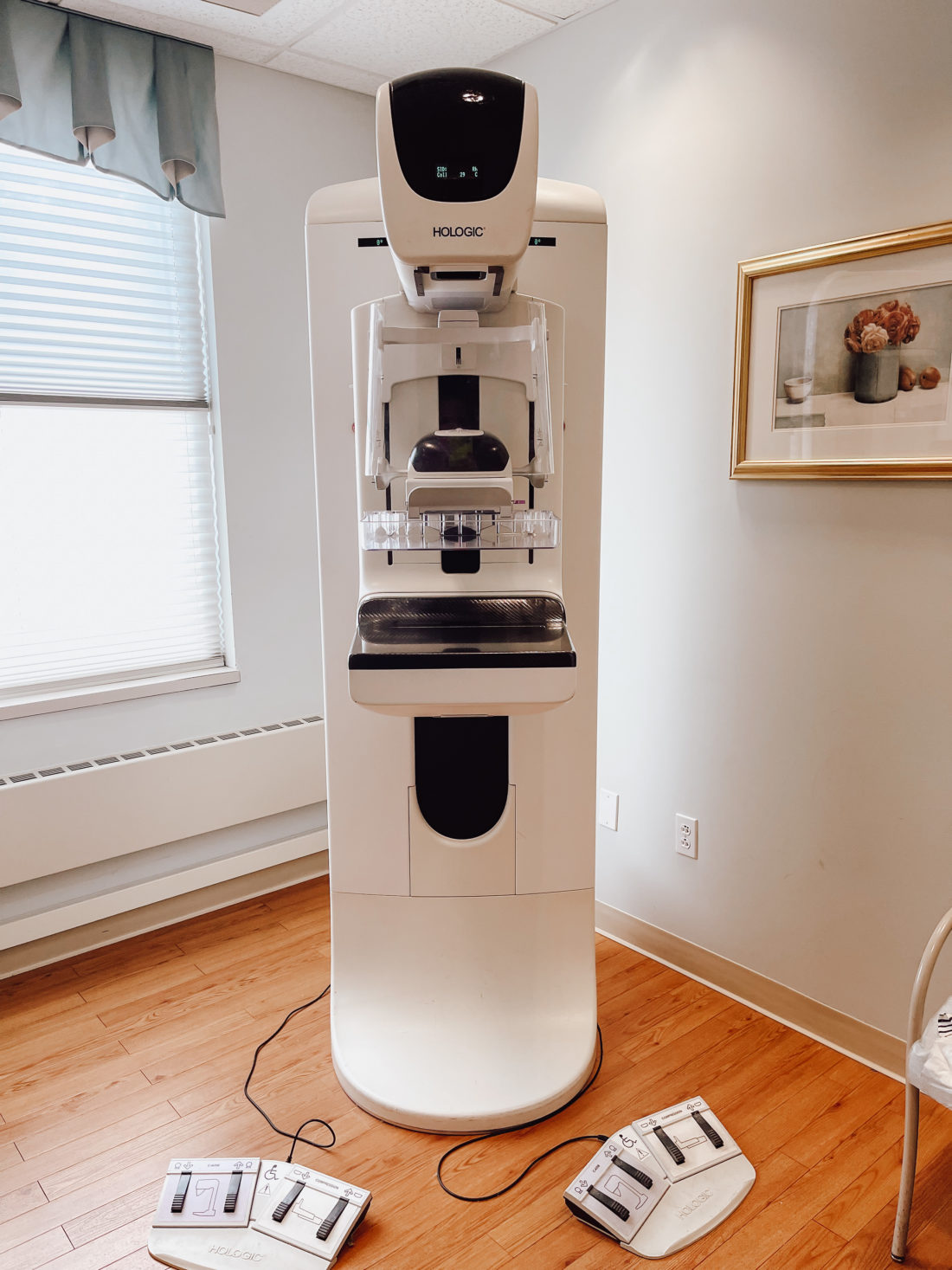
DISCLAIMER: The information included in this blog post and/or any linked materials, is not intended and should not be construed as medical advice, nor is the information a substitute for professional medical expertise or treatment. If you or any other person has a medical concern, you should consult with your health care provider or seek other professional medical treatment. Never disregard professional medical advice or delay in seeking it because of something that you have read on this blog or in any linked materials. If you think you may have a medical emergency, call your doctor or emergency services immediately.
By Eden Cale
In honor of Breast Cancer Awareness Month, I thought it would be a good time to stop what we’re all doing to talk about boobs. They come in a variety of shapes and sizes, they help feed our young, and they can be quite a snack for our partners…but if things go “tits up”, as my late friend Mel would say, they can also be a real source of grief.
I grew up acutely aware that breast cancer runs on the paternal side of my family. My Mamgu (grandmother) was diagnosed all the way back in 1950’s Wales, long before we had the vast amount of information about the disease that we do today. She underwent a double mastectomy and spent nearly a full year in hospital.
Last year when my aunt on the maternal side of my family was also diagnosed with breast cancer, I knew I was really in trouble. Nobody wants to have this disease run in their family, let alone on both sides.
Needless to say, I’ve always known that preventative screenings for breast cancer were in my future…I just didn’t realize the mammograms would begin at the “ripe” age of 35.
According to BreastCancer.org, some of the risk factors for developing breast cancer include having a family history of the disease, being overweight, having your first child after the age of 30, having dense breasts, and lack of exercise. Race can also play an important factor, with white women being much more likely to develop breast cancer in general, while women of color are more likely to develop more aggressive and advanced forms of breast cancer at a younger age. Even the length of time a woman breastfeeds her children can be a factor, with a lower risk of developing breast cancer being attributed to women that breastfed longer than a year.
It’s important to note, however, the difference between absolute risk and relative risk.
Absolute risk is your risk of developing a disease over time, while relative risk is the amount that something you do or don’t do can increase or decrease that absolute risk. For example, my absolute risk of developing breast cancer over time is 13.8%, so in order to keep that risk from going up more, it’s very important for me to mitigate my relative risks by maintaining a healthy weight, exercising regularly, and avoiding alcohol. (You can check your own absolute risk for developing breast cancer with this free assessment tool from the National Cancer Institute.)
Cut to a recent pap smear—one that I had skipped by over a year because of the pandemic—where my gynecologist asked me if there were any disease updates in my family history. I explained that my maternal aunt was diagnosed with breast cancer in late 2020, to which she explained that I would now be required to have a baseline mammogram screening as soon as possible.
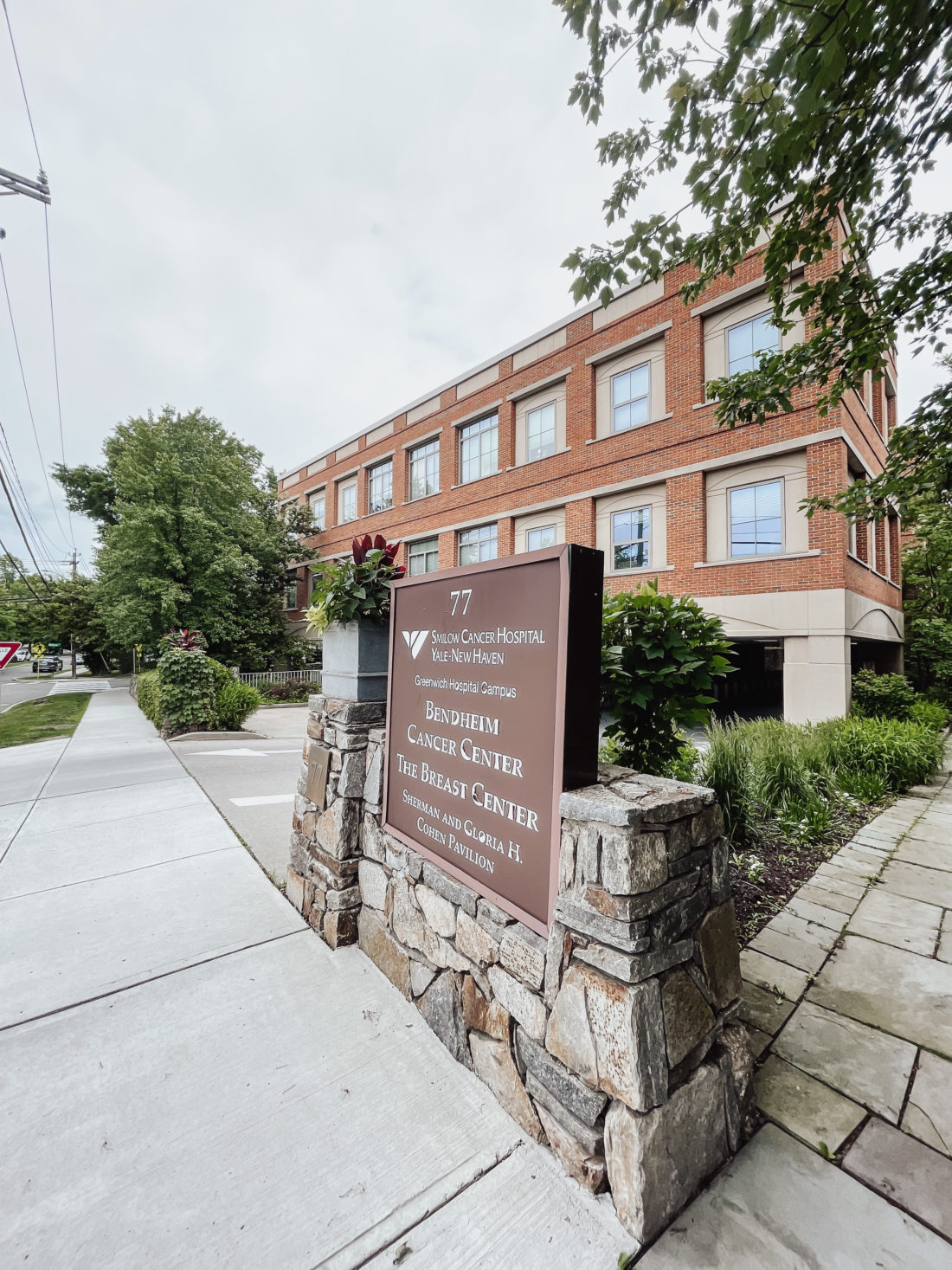
Up until this point, I had never heard of a baseline mammogram, nor had I known anyone under the age of 40 to get one. At barely 35, I thought I had years to worry about mammograms…but I was wrong. I started to sweat. Don’t mammograms hurt? What if they found something suspicious that would require a biopsy? Different scenes began playing in my head while I started mentally tallying the score…
Family history on both sides? Check.
Gave birth to my first child after 30? Check.
Breastfed for under one year? Check.
Dense breasts? Check.
And what about environmental factors? I’ve always placed an emphasis on avoiding GMO’s and plastics as much as possible, especially when it comes to anything that would eventually touch our food, like only buying glass Tupperware and nontoxic pots and pans, and checking labels for hidden endocrine-disrupting hormones like bisphenol-A, phthalates, and sulfates. As if Cancer was going to think twice about invading my breasts because I spent $8 on organic strawberries.
I mentioned my fears to my friend Alex, who has been battling this disease for the last few years, and she urged me not to place too much emphasis on “the things that cause cancer”. She assured me that the bulk of women that she met during her treatment journey had a family history of the disease, and that highlighting those secondary factors can lead to a lot of unnecessary guilt in those who are eventually diagnosed. She also told me that those in a similar position as me should be encouraged to feel empowered to be proactive about their health, rather than overwhelmed by data that may suggest a correlation. After all, correlation does not imply causation. Breast Cancer (or any Cancer!) #protip, right there.
I told my friend Mared that I was thinking about postponing the mammogram screening until after the pandemic because of my spiraling internal dialogue. I assured her I would go eventually, but that my anxiety about everything was just too high to go through with it right now.
She sternly told me to put on my big girl panties and follow through now, and her reasoning was fair…
Our mutual friend Mel had had a family history of the disease and begged her doctors for an early mammogram screening. Mel was a mother of three, energetic, hilarious, and one of the hardest working people I knew. She was ultimately denied that early screening request by her doctor, and by the time they found her breast cancer in 2013, it had already eaten away at her bones, her lungs, and her brain. Despite the doctors scheduling her for an aggressive chemo treatment plan, it was too late.
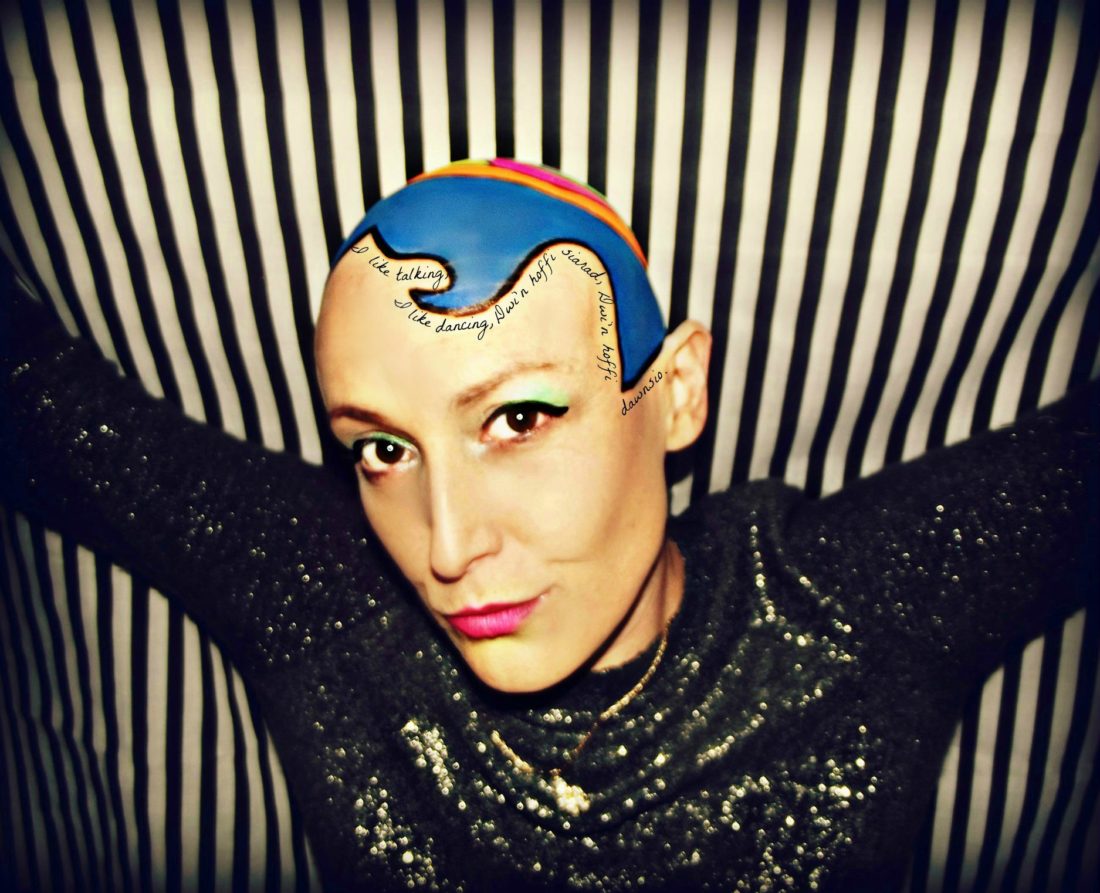
I’ll never forget my last trip to Cardiff to visit Mel shortly after she stopped treatment in 2013. She was already on morphine at that point, so there wasn’t much we were able to do together beyond taking short walks, popping into nearby shops, and laughing while playing Card Against Humanity. I still have enormous regret about how distracted I was by a project I was working on during that visit. I wish I had had the courage at the time to tell her how much I loved her; how much she meant to me; how much I was going to miss her.
She passed away a few short months later. There’s not a day that goes by that I don’t think about her and the loss that her children have had to endure in her absence.
I called the hospital to book the screening and took their first availability.
The day of my mammogram, I arrived 15 minutes early, as instructed by the scheduling team. Once I was in the mammogram machine room, the nurse explained everything that was going to happen step by step. She instructed me to get undressed from the waist up and I was given a robe, and told to wear it with the opening towards the front. She gave me a quick verbal screening, asking when the last time I had breastfed was, and if I had any specific breast concerns. I told her that it had been two years since I had breastfed my son, and that I didn’t have any present concerns, and then she instructed me to stand up and face the machine.
The machine itself is a little intimidating…it almost looks like a fancy scanner…except instead of scanning your papers you’re scanning your boobs! LOL.
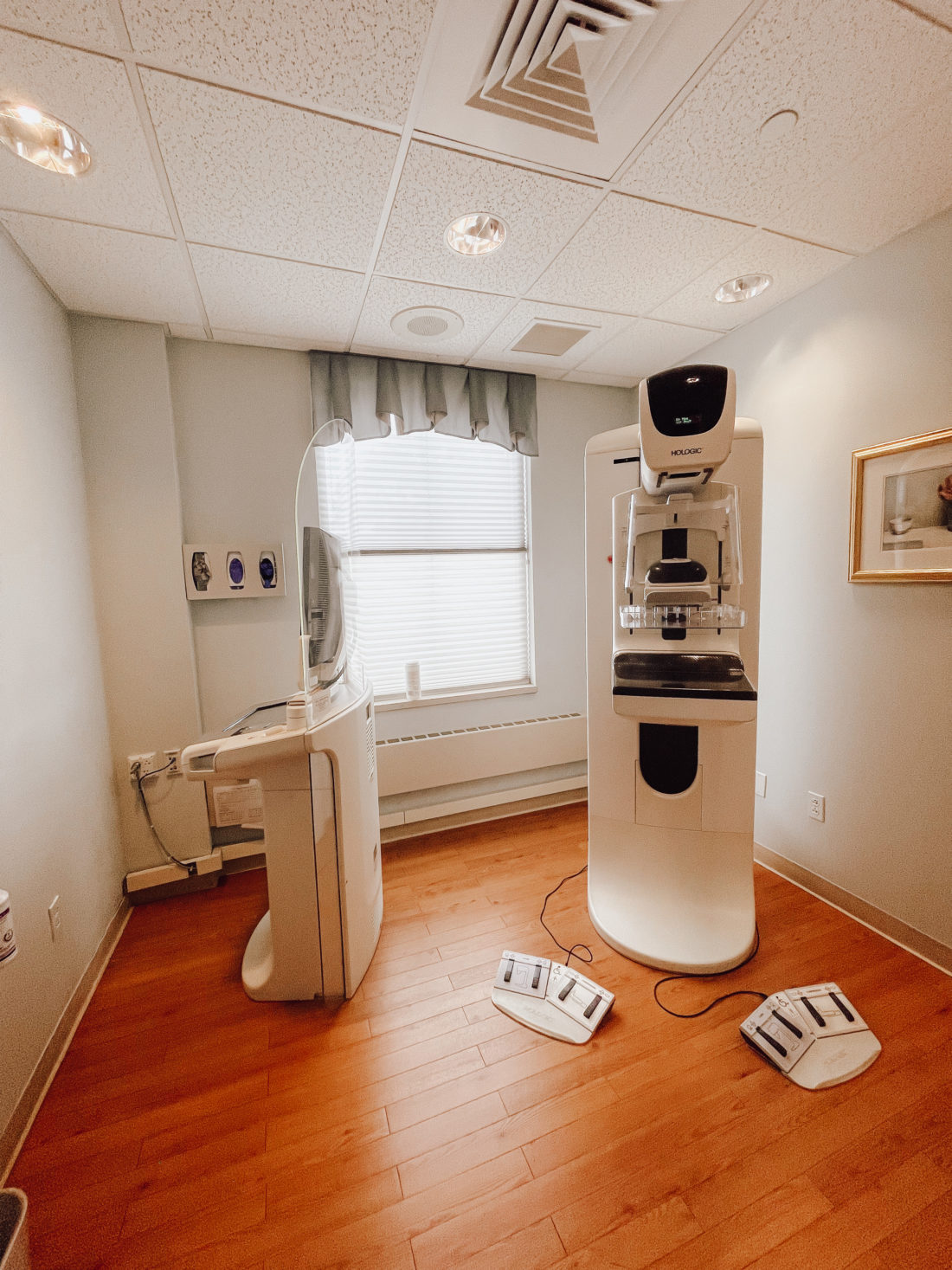
The nurse walked me through placing each breast into the machine one by one, and how to hold onto the side of the machine so that I didn’t accidentally X-ray my arms, and also when to breathe and when to hold my breath during the scan itself. To my surprise, it wasn’t painful at all. Did my boobs feels like they were being smushed into pancakes? FOR SURE. But I’ll take a smushed pancake boob over late-stage breast cancer any day of the week.
The scan itself took no more than 5 minutes. I was in and out of the hospital in less than 20 minutes total from entry to exit.
Then it was time to wait.
I chewed my nails to the actual bone…so far down that some of them started to bleed. I refreshed MyChart about a bagillion times a day, waiting for the scan results to arrive.
When I finally received the call from my doctor about a week later, she confirmed that the baseline mammogram was entirely ‘unremarkable’. There were no lumps or lesions of concern. I felt so relieved after all the stress and worry, that I just completely broke down in tears. My emotions were all over the place. I felt so grateful for the gift of this early scan, and so angry that Mel wasn’t given the same opportunity.
Mel wrote a moving spoken-word piece about her battle with breast cancer that aired on BBC Wales back in 2013, which she comically titled ‘It’s All Gone Tits Up’. Unfortunately, it’s no longer available in its entirety, but luckily I had the foresight to save the last minute of it, so I placed it over a slideshow of images of her and us that I rewatch every year on the anniversary of her passing, which was October 13th. It’s particularly meaningful to me because it’s the convergence of two people I love whose lives were deeply impacted by this disease: Mel, who is discussing Nick Drake’s song ‘Northern Sky’, and my dad who co-produced it back in 1971.
I hope that some of my words above and some of Mel’s words below encourage anyone reading this to be proactive about their health. Mammograms aren’t scary, and they’re completely painless. Annual check up’s, screenings, and breast self-exams save lives. Check out our graphic below for how to perform a self-breast exam at home, and if you have any questions about my experience, feel free to drop me a line in the comments section below and I’ll do my best to answer.
This one’s for you, Mel.
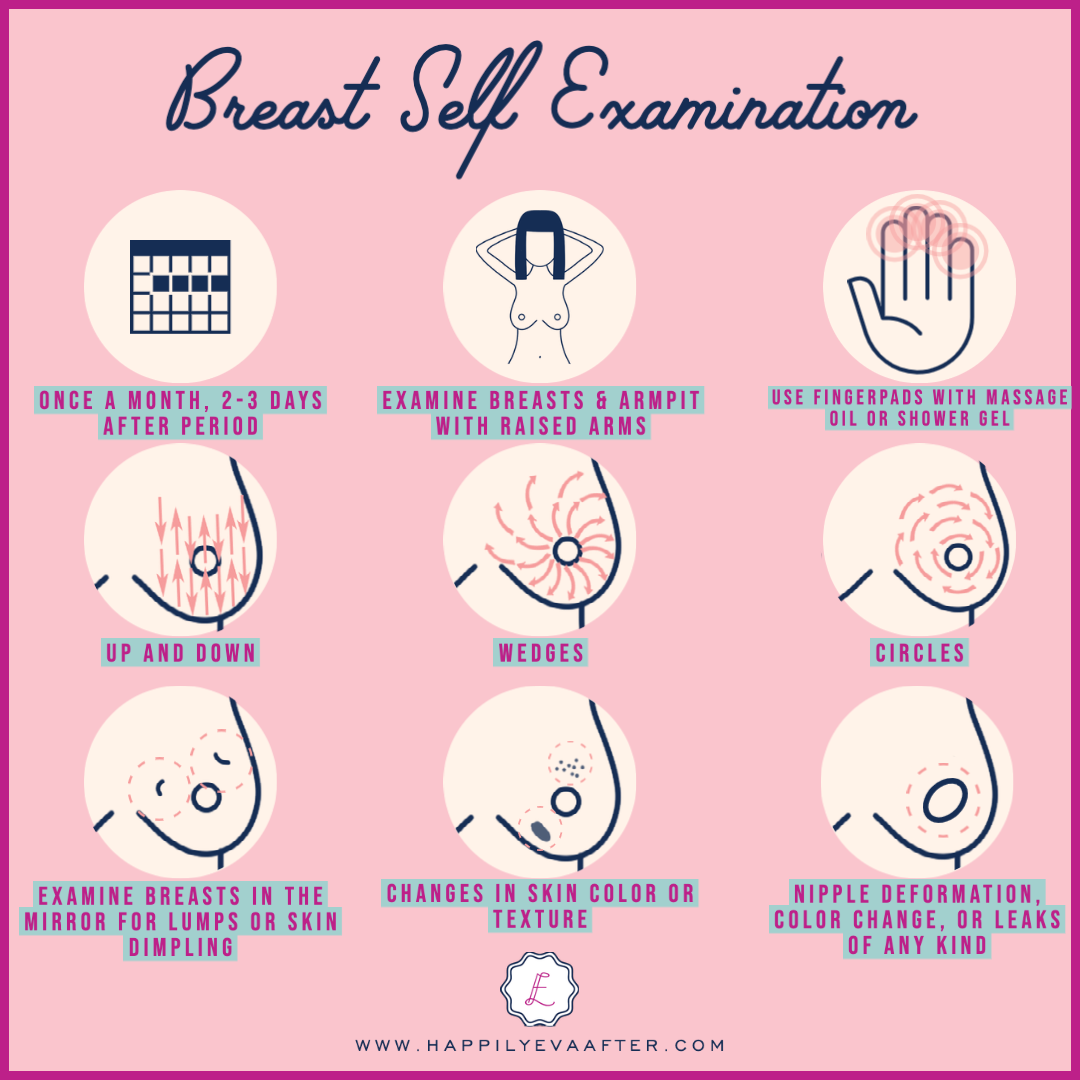
Copyright © 2021 Happily Eva After, Inc. All Rights Reserved.
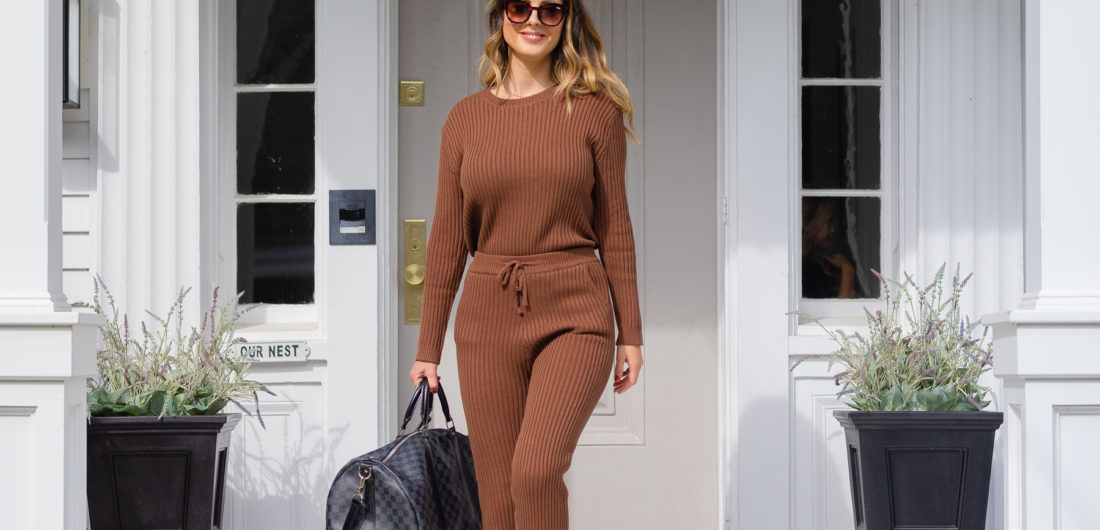
In 2009 when my mom was diagnosed with breast cancer, I was 37 and had my first baseline screening. Her cancer was discovered by an annual mammogram and was caught early – which was great since hers was a particularly aggressive case. She didn’t find anything in her personal breast exams. She had a mastectomy and has been cancer free since 2010. I have been having an annual mammogram since then. I find them more reassuring than scary.
Thank you so much for sharing your experience! So glad to hear your mom is on the mend, and that you’re getting screened every year. Sharing our first-hand experiences with others really helps to dispell the fear that so many of us feel. Wishing you all the best!
So Sorry about Mel. I had just scheduled yearly mammogram and, came back with dense breasts. I have had that since I first started gettting mammograms. I started at about 40. I am now 45. I am glad I have this opportunity to get mammograms.
Every year I go faithfully. I don’t find the process scary, but the waiting for results sure is stressful. I have a sister who had a lumpectomy. We have dense breasts.
Thanks for talking about this. In fact, even though this is one of the species that can be cured in the early stages, we still need to prove that we need to get tested. I don’t understand this. I think it is worth talking about this even with our children. But few people support this opinion. Hopefully this will change soon. My aunt had breast cancer and it is good that she was saved, but it was definitely the most stressful period of our family’s life. I sincerely wish that this does not happen again.